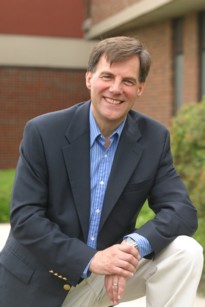Many descriptions survive of Baptist Church House in
Holborn, London, but my experience of climbing the steps under John Bunyan’s stature,
pushing open the large oak doors, passing Spurgeon’s statue in the black and
white tiled entrance, opened a new world. I could hardly believe that I was
working there! Ascending the stairs, past different departments, the
Shakespeare Room (where we held worship) and the stunning Council Chamber, I
reached my own office. Room 32 which,
though I shared it with the Stewardship Dept. overseen by Ungoed Davies
and Jim Findlay, was rarely used by them.
A desk, old typewriter, paper, carbon paper was waiting for me. Fortunately,
I had taught myself touch typing in my early teens, so I could cope with being
my own secretary. Instantly, I was
catapulted into a crash induction course about what it meant to belong to the
national Baptist family. Beginning the same day as the new General Secretary,
David Russell I know he was definitely better prepared than me! So much was to happen to change the direction of my life. In summary, I note four
key aspects.
First, personal changes. As a newcomer I was treated with extraordinary
kindness by all the staff. My role with student work was placed within the
Youth Department. Its head, Peter Tongeman, gave me immense freedom. However, in
my first month, Peter suffered peritonitis and David Russell sent me in his
place to chair an International Baptist Student Conference in the Baptist
seminary, Ruschlikon, Switzerland. Having
only traveled abroad once before (briefly to Paris) I suddenly found myself leading
a small group of chosen British students to join others for (what proved to be)
an intensive conference. Suddenly I was chairing
sessions, discussions and even preaching.
What rash assumptions were made about my competences! Most significantly, one of the British party
was a recently orphaned student called Carol Bentall. Utterly swept off my feet by her, we were married
after 11 months. Carol was to prove the
single best thing that has happened to me and my ministry, next to my
relationship with Jesus Christ.
Inevitably, this developing romantic relationship added yet more sheen to
my happy BUGB memories.
It needs to be added that Carol’s teenage conversion under
Frank Goodwin’s ministry at Chatsworth BC, West Norwood, led to her leadership
in the large youth group. She describes how the church became her family when
her mother died, giving Carol profound support in every way. Out of her
experience, she was so positive about how a local Baptist church could express
love in action. Actually, her presence in Switzerland owed everything to the
church’s practical support. Her positive
experience of the local Baptist church was to prove vital for the future.
Second, organizational experience. Quickly, I learned
the Union’s main accountability structures: specialist committees reporting to
Main Committees onto General Purpose and Finance Committee and ultimately to
the Council. My first Council Meeting in 1967 remains imprinted on my mind. The
Chamber (where the British Council of Churches was formed) had a parliamentary
feel, with circular seating around staff at a central table. I was to witness
many key Baptist leaders in action. With
high quality debate, I grew to know names of individuals, their favoured seats,
points of view, and likely interventions. Several memories still hold of key dramatic moments. I had no idea that British Baptists comprised such a range of gifted people. All the time I was imbibing Baptist life and
making connections. Networking it would be termed today.



